
CT
Latest News

Latest Videos

CME Content
More News

Catch up on the top radiology content of the past week.
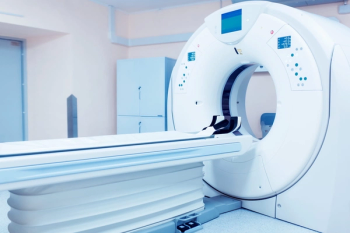
Recently published research projected that 103,000 future cases of radiation-induced cancer would result from 93 million computed tomography (CT) exams performed in the United States in 2023.
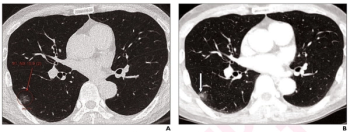
In comparison to radiologist assessment, the use of AI to pre-screen patients with low-dose CT lung cancer screening provided a 12 percent reduction in mean interpretation time with a slight increase in specificity and a slight decrease in the recall rate, according to new research.
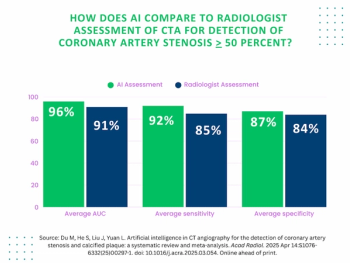
Meta-Analysis Shows Merits of AI with CTA Detection of Coronary Artery Stenosis and Calcified Plaque
Artificial intelligence demonstrated higher AUC, sensitivity, and specificity than radiologists for detecting coronary artery stenosis > 50 percent on computed tomography angiography (CTA), according to a new 17-study meta-analysis.
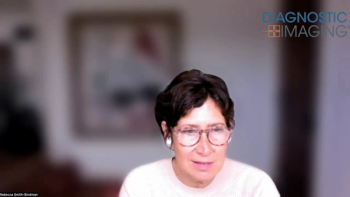
In a recent interview, Rebecca Smith-Bindman, M.D., offered key insights on new research examining the link between computed tomography scans and projected future cases of radiation-induced cancer.
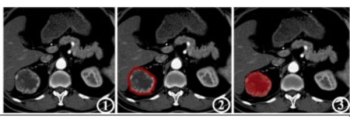
In comparison to a model based on clinicopathological risk factors, a CT radiomics-based machine learning model offered greater than a 10 percent higher AUC for predicting five-year recurrence-free survival in patients with non-metastatic clear cell renal cell carcinoma (ccRCC).

Catch up on the top radiology content of the past week.
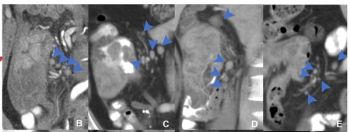
For patients with microsatellite instability-high colon cancer, distribution-based clinical lymph node staging (dCN) with computed tomography (CT) offered nearly double the accuracy rate of clinical lymph node staging in a recent study.
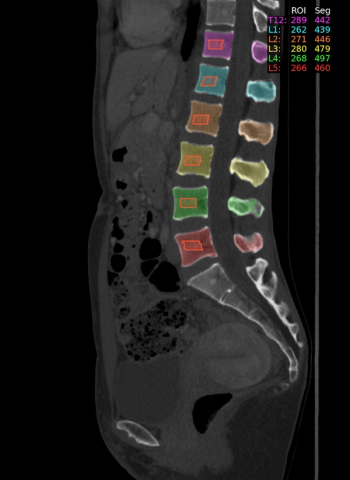
The Bunkerhill BMD software provides AI-automated assessment of bone mineral density from non-contrast abdominal computed tomography scans.
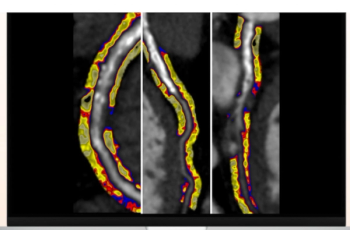
Going into effect in 2026, the new CPT codes may facilitate increased adoption of the CaRi-Heart software for detecting coronary inflammation from computed tomography scans pending FDA clearance of the technology.

For patients with acute ischemic stroke, research has demonstrated that automated assessment of ischemic core volume on brain CT scans via the Brainomix 360 software is equivalent to that derived from CT perfusion.

Catch up on the top radiology content of the past week.
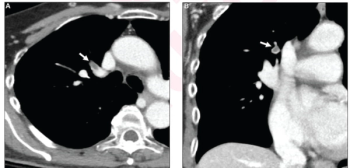
Study with CT Data Suggests Women with PE Have More Than Triple the One-Year Mortality Rate than Men
After a multivariable assessment including age and comorbidities, women with pulmonary embolism (PE) had a 48 percent higher risk of one-year mortality than men with PE, according to a new study involving over 33,000 patients.
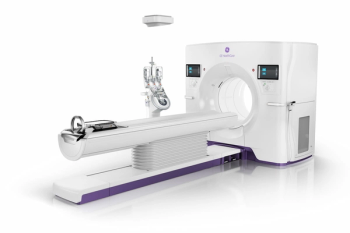
Featuring enhanced low-dose image quality with motion-free images, the Revolution Vibe CT system reportedly facilitates improved diagnostic clarity for patients with conditions ranging from in-stent restenosis to atrial fibrillation.
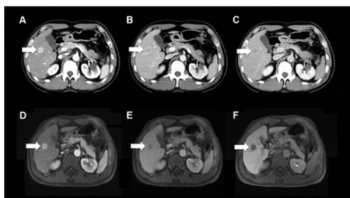
LI-RADS category 5 (LR-5) assessment had an 11 percent higher AUC for detecting hepatocellular carcinoma (HCC) in patients with non-cirrhotic chronic hepatitis C (CHC) in comparison to those with cirrhotic CHC.

Catch up on the top radiology content of the past week.
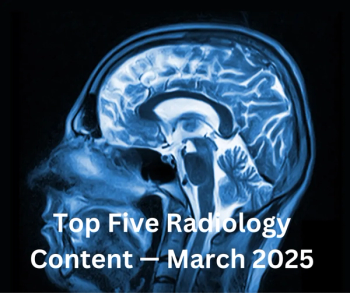
Catch up on the most-well viewed radiology content in March 2025.
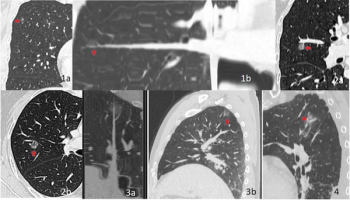
The cLung-RADS v2022 model offered a greater than 16 percent increase in the AUC in comparison to Lung-RADS 1.0 and Lung-RADS v2022 systems for predicting the invasiveness of pure ground-glass nodules.

Catch up on the top AI-related news and research in radiology over the past month.
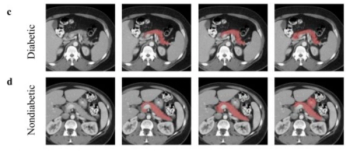
Attenuation-based biomarkers on computed tomography (CT) scans demonstrated a 93 percent interclass correlation coefficient (ICC) agreement across three pancreatic segmentation algorithms for predicting diabetes, according to a study involving over 9,700 patients.

Catch up on the top radiology content of the past week.
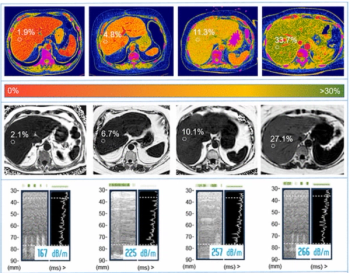
Photon-counting CT fat fraction evaluation offered a maximum sensitivity of 81 percent for detecting steatosis and had a 91 percent ICC agreement with MRI proton density fat fraction assessment, according to new prospective research.

Catch up on the top radiology content of the past week.

For immunocompromised individuals, denoised ultra-low-dose CT offers similar detail as normal-dose CT scans for pneumonia detection, according to a recent study.
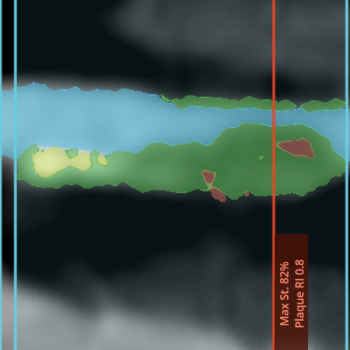
Through AI-powered assessment of coronary computed tomography angiography (CCTA) scans, the CaRi-Plaque software may provide improved clarity on the development of coronary plaques and luminal stenosis.





















